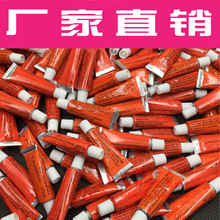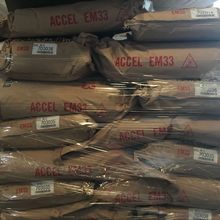David Daleiden claimed to be an undercover journalist when he investigated Planned Parenthood.
Last week I wrote about the surprise ending to a Texas grand jury’s investigation into alleged criminal wrongdoing by Planned Parenthood. After months of digging, a Houston grand jury declined to indict the health clinic but instead upped and indicted the Center for Medical Progress founder David Daleiden and his employee Sandra Merritt for tampering with a government record (creating fake California driver’s licenses). Daleiden was also tagged with a misdemeanor charge for his written attempts to purchase human organs.
Immediately a small First Amendment firestorm kicked up, questioning whether Daleiden’s prosecution imperiled journalists and journalism and—perhaps more pointedly—whether Daleiden is even a journalist in the first place.
Daleiden certainly thinks so. Almost as soon as the indictments were announced, a statement on the CMP website claimed, “The Center for Medical Progress uses the same undercover techniques that investigative journalists have used for decades in exercising our First Amendment rights to freedom of speech and of the press, and follows all applicable laws.” The Thomas More Society has argued in an unrelated civil suit against CMP that “equally as any other investigative journalist working for ABC, NBC, CBS, Fox News, or your local print or electronic media outlet may regularly resort to undercover journalism tactics to ferret out hidden crime, so too David Daleiden should have the right to penetrate the criminal underworld of America’s abortion providers and report all the evidence he has uncovered of criminal wrongdoing to law enforcement and to members of the public.” Daleiden’s defense lawyer, Charles LiMandri, explained that Daleiden and Merritt are “investigative journalists … using standard, and legal, undercover investigative techniques” and that they are being prosecuted under a law that “was intended to stop people like identity thieves from stealing Social Security checks from seniors.” Even staunch abortion supporters such as Sherry Colb and Michael Dorf have worried that journalism generally, and investigative journalism specifically, is at risk in the current climate and that “the criminal prosecution of Daleiden and Merritt, even if they did break the law, could chill undercover journalists and activists everywhere.”
On the other hand, is it so simple to say that what CMP was doing was truly journalism? Amanda Marcotte has argued at Salonthat Daleiden “has no right to call himself a journalist,” in part because when the hours of footage he shot failed to turn up any examples of criminal conduct on the part of Planned Parenthood, Daleiden didn’t back off the story but doubled down on it. Indeed he allegedly falsified evidence, so the videos would show through trickery—including flawed transcripts and stock images—that which he could not prove. In an interview in On the Media this week, Jane Kirtley, professor of media ethics and law at the University of Minnesota, similarly explained that American courts have almost always found that general criminal laws apply to the press, unless a story is so terrifically important it couldn’t have been unearthed any other way. That might justify allowing journalists to be immune from prosecution, but only a small handful of such cases exist, and as Kirtley points out, it will be difficult for Daleiden to claim that his actions were critical to exposing vast criminal wrongdoing on the part of Planned Parenthood, given that the grand jury’s own investigation, and 11 independent state investigations, have unearthed no wrongdoing. The difference between journalism and what CMP did is that journalists seek truth, while Daleiden seeks to show that somewhere in between the edited seams and faked voiceovers of his films there lies a truth he cannot quite prove but wants us to believe anyhow. That can be called many things, but “journalism” probably isn’t one of them.
Advertisement Advertisement Advertisement AdvertisementJoyce Terhaarmakes a similar point over at the Sacramento Bee, citing a journalism ethics checklist published in 2002 by Bob Steele, a national leader on journalism ethics. According to Steele’s list, “it might be appropriate to use deception/misrepresentation/hidden cameras if all of the following were true: the information is of profound importance; all other alternatives for obtaining it have been exhausted; the nature of and reason for the deception will be disclosed; those involved apply excellence to the full pursuit of the story; the harm prevented outweighs any harm caused; and the journalists involved have thoroughly vetted the ethical and legal issues.” Sonja West, a law school professor at the University of Georgia, concludes, “undercover reporting is one of the most important areas where protecting the press would bring about great public good. Think of Upton Sinclair’s work investigating the meatpacking industry. It’s how we’ve learned about all sorts of public health violations and government malfeasance. The difference is that for a journalist, the use of deception is the last resort and is not a ‘gotcha’ gimmick.”
AdvertisementThat general ethic is precisely why the Society of Professional Journalists’ Code of Ethics condones undercover reporting and surreptitious behavior onlywhen there are pressing societal reasons and other techniques will not suffice to yield the information sought . The SPJ’s ethics code requires that investigative journalists take care to protect their integrity and transparency, by “avoid[ing] political and other outside activities that may compromise integrity or impartiality” and “treat[ing] sources [and] subjects … as human beings deserving of respect.” A journalist, says SPJ, “avoid[s] pandering to lurid curiosity,” “show[s] compassion for those who may be affected by news coverage,” “balance[s] the public’s need for information against potential harm or discomfort,” recognizes that “[p]ursuit of the news is not a license for arrogance or undue intrusiveness,” and “realize[s] that private people have a greater right to control information about themselves than public figures.”
Advertisement Advertisement AdvertisementIt’s hard to locate CMP in the tradition of that kind of noble investigative journalism when, as the New YorkTimesnoted in July, they only recently revised the organization’s mission on its website to include it: “Originally it was a nonprofit ‘dedicated to informing and educating both the lay public and the scientific community about the latest advances in regenerative medicine, cell-based therapies, and related disciplines.’ Recently it became ‘a group of citizen journalists dedicated to monitoring and reporting on medical ethics and advances.’ ”
I asked Mary-Rose Papandrea, who teaches media law at the University of North Carolina School of Law, whether the law would protect Daleiden’s activities. She clarifies that “while there is a reporter’s privilege recognized in some form by most states, it has to do with getting protection from having to turn over sources or newsgathering material. It would not privilege the fraudulent use of IDs.” Papandrea adds that the very question of “Who is a journalist?” was a part of the reasoning for the Supreme Court’s rejection of a reporter’s First Amendment privilege in the grand jury context in Branzburg v. Hayesin 1972. As she notes, “one reason the majority gave for rejecting the privilege was the ‘practical and conceptual difficulties of a high order,’ particularly who is entitled to the privilege. The court noted the ‘lonely pamphleteer’ as well as ‘lecturers, political pollsters, novelists, academic researchers, and dramatists’ might be entitled to invoke it.”
Advertisement Advertisement AdvertisementDramatists, indeed. It’s hard to know, right now, whether Daleiden plans to use some kind of reporter’s privilege argument to defend against the criminal charges in Texas, and we have already seen that this argument has not fared well in his civil case in California. But even if Daleiden is simply making a rhetorical argument—rather than a purely legal one—about the dangers of going after dedicated undercover reporters, he may be stretching the very definition of journalism beyond the bounds that the rest of us can accept.
AdvertisementI asked Amy Gajda, author of The First Amendment Bubble: How Privacy and Paparazzi Threaten a Free Pressand professor of law at Tulane University, whether defenders of the First Amendment and journalistic values should be rushing to Daleiden’s defense. She explains, in an email, that “the larger question here is whether we are all journalists anytime we seek to gather information or to share information with others. Does asking another about an event instantly transform one into a journalist? Does the sharing of truthful information on the Internet instantly make one a journalist?” Gajda’s response is clear: “I think not. Many of us do these things daily and our motivations vary from self-satisfaction for being first to post, to snarkiness, to public relations, to blind advocacy at all costs. None of that is real journalism, at least as journalism has traditionally been defined.”
Advertisement AdvertisementWhile it’s true, she notes, that courts are grappling with questions of what makes a journalist, a California appeals court found last year that “taking photographs and making recordings are not always or necessarily journalistic activities.” Conversely, theU.S. Court of Appeals for the D.C. Circuit decided in a Freedom of Information Act case last year that an advocacy organization might qualify for a news media fee waiver because members gathered information and supplied it to the public via a website. Still, that case limited the definition of journalism as well: “[A] requester seeking news-media status generally must demonstrate more than an intention to engage in an isolated episode of journalistic activity. As we have explained, the news-media provision covers a certain kind of person or entity, not a certain kind of request, and we therefore doubt that a requester could qualify based on even a firm plan to undertake journalistic activity on a purely one-off basis.”
Advertisement AdvertisementThe central thesis of Gajda’s book is that when courts slap back at those who are claiming to do “real journalism” but aren’t, it’s invariably the real journalists who suffer. That’s why it’s more important than ever to be clear about whether anyone with a camera and a website is a reporter.
Advertisement AdvertisementAs Gajda concludes, “the gathering and publishing of information doesn’t instantly make one a journalist, just like the sharing of legal information doesn’t instantly make one a lawyer or knowingly hypothesizing about an illness doesn’t make one a physician. In the latter two examples, the focus is on education, proof of knowledge, and the government’s own line-drawing in licensing lawyers and doctors. There is no government-issued license to practice journalism.” She argues that it will be left to us, the reading public, to draw the lines that courts and legislatures have struggled to clarify: “Unbiased consumers of information could well know journalism when they see it. These consumers believe in some publishers more than others because the publishers’ work is reliable and ethical and truthful, often or mostly published without bias or ideology. And that’s very similar to the way journalism has been defined in a traditional sense, long before we all became publishers.”
In other words, it’s entirely possible that even while Daleiden attempts to argue that what he did—or at least what he now says he was doing—is genuine journalism, there are real risks to the rest of us in allowing him to make such broad claims. We aren’t merely risking our privacy and our livelihoods by allowing anyone with a camera and an inextinguishable fantasy to call himself a reporter. We are courting the possibility that his nihilistic and cynical view of the profession could someday become the norm.
Tweet Share Share Comment(责任编辑:产品中心)
-
Keurig K Mini deal — get $30 off at Target
 GET $30 OFF:As of Aug 28, you can snag a Keurig K Mini single-serve coffee maker for just $59.99, do
...[详细]
GET $30 OFF:As of Aug 28, you can snag a Keurig K Mini single-serve coffee maker for just $59.99, do
...[详细]
-
 薛康,金丝猴文化学者、摄影师。10月20日至24日,他带着《大熊猫——珍稀可爱的宝宝》大熊猫主题邮集、金丝猴摄影集作品,在第七届世界经济论坛2019“一带一路”俄罗斯峰会上展出。这部邮集曾在今年4月举
...[详细]
薛康,金丝猴文化学者、摄影师。10月20日至24日,他带着《大熊猫——珍稀可爱的宝宝》大熊猫主题邮集、金丝猴摄影集作品,在第七届世界经济论坛2019“一带一路”俄罗斯峰会上展出。这部邮集曾在今年4月举
...[详细]
-
 增城迟菜心花样百变!“探菜图”带你寻找高品质菜心_南方+_南方plus惹味金钩赌迟菜心——将迟菜心放入烧得极热的砂煲中,配以虾干、腊味以及酱汁爆香,可谓香气勾魂。麒麟蒸迟菜心——火腿与迟菜心一同蒸制,
...[详细]
增城迟菜心花样百变!“探菜图”带你寻找高品质菜心_南方+_南方plus惹味金钩赌迟菜心——将迟菜心放入烧得极热的砂煲中,配以虾干、腊味以及酱汁爆香,可谓香气勾魂。麒麟蒸迟菜心——火腿与迟菜心一同蒸制,
...[详细]
-
 信用卡不慎逾期还款不但要罚息,不少持卡人因为疏忽还有可能背上利滚利的滞纳金。而随着今年上半年央行下发 《关于信用卡业务有关事项的通知》,这样的问题今后有望消失。根据新规,明年1月1日起取消信用卡滞纳金
...[详细]
信用卡不慎逾期还款不但要罚息,不少持卡人因为疏忽还有可能背上利滚利的滞纳金。而随着今年上半年央行下发 《关于信用卡业务有关事项的通知》,这样的问题今后有望消失。根据新规,明年1月1日起取消信用卡滞纳金
...[详细]
-
 海丰芥蓝入选全国名特优新农产品名录_南方+_南方plus日前,农业农村部农产品质量安全中心公布了2024年度全国名特优新农产品名录,“海丰芥蓝”成功入选,海丰名物再添一员!“南海物丰”,海丰县属南亚热
...[详细]
海丰芥蓝入选全国名特优新农产品名录_南方+_南方plus日前,农业农村部农产品质量安全中心公布了2024年度全国名特优新农产品名录,“海丰芥蓝”成功入选,海丰名物再添一员!“南海物丰”,海丰县属南亚热
...[详细]
-
 2024年广州市农业主导品种和主推技术发布_南方+_南方plus12月25日,广州市农业农村局发布《关于发布2024年广州市农业主导品种和主推技术的通知》下称《通知》),发布2024年广州市农业主导品
...[详细]
2024年广州市农业主导品种和主推技术发布_南方+_南方plus12月25日,广州市农业农村局发布《关于发布2024年广州市农业主导品种和主推技术的通知》下称《通知》),发布2024年广州市农业主导品
...[详细]
-
 雅安日报/北纬网讯8日,2019年四川省首届《国家体育锻炼标准》达标赛雅安分站赛在市体育馆举行,来自全市各县区)的128名健身爱好者和在校学生参加了本次达标赛。本次达标赛年龄覆盖广泛,参赛队员年龄从1
...[详细]
雅安日报/北纬网讯8日,2019年四川省首届《国家体育锻炼标准》达标赛雅安分站赛在市体育馆举行,来自全市各县区)的128名健身爱好者和在校学生参加了本次达标赛。本次达标赛年龄覆盖广泛,参赛队员年龄从1
...[详细]
-
 “祝您节日快乐,身体安康!”10月9日是重阳节,在这个尊老敬老的传统节日里,喜旺集团员工一行来到烟台夕阳红老年公寓,为老人送去温暖和祝福,陪老人度过一个欢乐祥和的重阳节。在老
...[详细]
“祝您节日快乐,身体安康!”10月9日是重阳节,在这个尊老敬老的传统节日里,喜旺集团员工一行来到烟台夕阳红老年公寓,为老人送去温暖和祝福,陪老人度过一个欢乐祥和的重阳节。在老
...[详细]
-
 North Korean leader Kim Jong-un, right, attends a ceremony alongside his daughter, Ju-ae, to mark th
...[详细]
North Korean leader Kim Jong-un, right, attends a ceremony alongside his daughter, Ju-ae, to mark th
...[详细]
-
 在国庆节到来之际,为积极回报社会,关爱老年群体,9月25日上午,招商银行潍坊分行联合潍坊市体育局、老龄委,在东苑公园(老干部活动中心)隆重举办了庆祝国庆节、老人节“和谐潍坊和谐招行&rdq
...[详细]
在国庆节到来之际,为积极回报社会,关爱老年群体,9月25日上午,招商银行潍坊分行联合潍坊市体育局、老龄委,在东苑公园(老干部活动中心)隆重举办了庆祝国庆节、老人节“和谐潍坊和谐招行&rdq
...[详细]

 13 Unbelievable Underwater Wonders in Florida
13 Unbelievable Underwater Wonders in Florida 闈掑矝钃濊壊缁忔祹鍖哄紩鏅烘垚鏋滅ず鑼冨熀鍦版柊澧?0鍚嶆垚鍛榑涓浗灞变笢缃慱闈掑矝
闈掑矝钃濊壊缁忔祹鍖哄紩鏅烘垚鏋滅ず鑼冨熀鍦版柊澧?0鍚嶆垚鍛榑涓浗灞变笢缃慱闈掑矝 世界冰箱:从地面上百家争鸣到太空中一枝独秀
世界冰箱:从地面上百家争鸣到太空中一枝独秀 银保联动 助农振兴,潮州人保财险联合农行举行“农户贷”签单仪式
银保联动 助农振兴,潮州人保财险联合农行举行“农户贷”签单仪式 21 Lost and Lonely Cemeteries
21 Lost and Lonely Cemeteries
